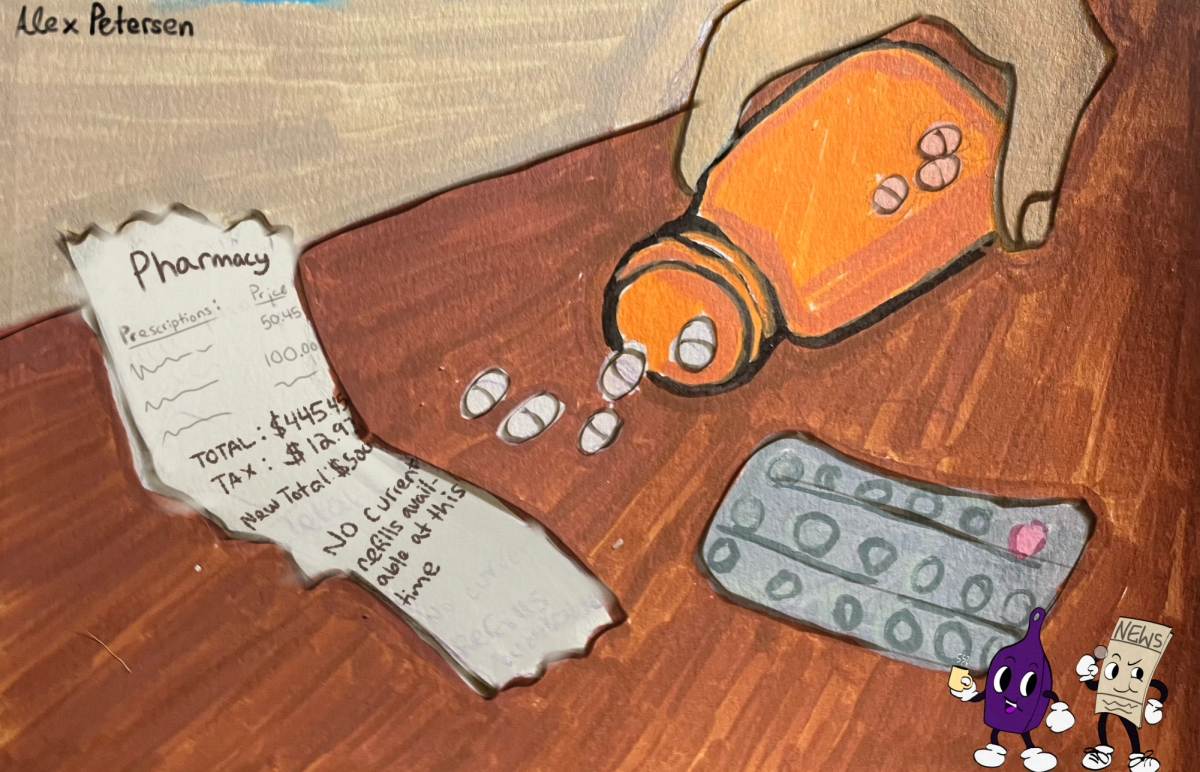On May 5, 2025, current President Donald Trump signed an executive order that directed various drug manufacturing and handling companies to reduce the prices of their products for the American population. President Trump tried to pass this executive order during his first term in 2021; however, former President Biden had denied the executive order from passing once he took office.
The executive order passed a variety of requirements that pharmaceutical companies, second hand drug stores, and protection and research facilities are obliged to enforce.
The U.S. Food and Drug Administration (FDA) is required to decrease the amount of time it takes to approve different domestic pharmaceutical manufacturers, increase fees for their inspections, and improve enforcement of active pharmaceutical ingredient sources. The Environmental Protection Agency is required to hasten their construction of facilities designed to produce prescription drugs. Federal agencies must ensure that permit holders remain in compliance with the White House Office of Management and Budget to ensure efficiency.
President Trump also plans to remove the “middlemen” in the pharmaceutical community. The middlemen “act as the intermediary between drug manufacturers, insurers and pharmacies”. Basically, the middlemen is the location the drugs and medications are delivered to in between the labs that create them and the pharmaceuticals that can sell them to the community..
The executive order was signed into law and created for various reasons. One of the largest reasons was to reduce the prices of medications within the United States. President Trump had hired analysts to perform an investigation about the different prices that medication costs world-wide.
They found that the average American pays almost twice the amount, around 278 percent, in comparison to other comparable countries. As an example, in 2019, America had spent around $1,126 per capita (per person). In comparison, other countries had only spent an estimated $522 per capita. According to a Human and Health Services report published in 2022, brand drugs in the U.S. were around 3.22 times higher compared to other developed countries; however, generic drugs are only 84 percent of what they cost in other countries that were studied.
President Trump had found this a discriminatory practice against the people living in the United States. So, in order to correct what he has deemed wrong, he is applying the “Most Favored Nation” (MFN) policy. This policy was created around the 18th century, specifically the 1778 treaty between France and the U.S.. This allowed for countries, including third world, to be able to pay the same price. Although the policy is not publicly put into action often, President Trump calling for its reinstatement in order to reduce medication costs still surprises a majority of people.
The “Most Favored Nation” policy means that countries participating in international trade must grant other countries the same trading rights as they provide for their most-favored countries, including tariffs and quotas. It is the international trade’s version of equal treatment.
As an example, Russia is selling buckets of snow to Madagascar for a dollar and fifty cents. Now, imagine that Greenland wants some of that snow, but because they are not one of Russia’s preferred countries, they get an increased price of around three dollars and seventy cents. The “Most Favored Nation” policy would prevent such an inflation for Greenland in comparison to Madagascar.
The importance of the “Most Favored Nation” policy has caused drastic changes in the international trading realm. In the modern age, it is often applied in international trade and is a cornerstone of ensuring that countries don’t discriminate against their irregular trading partners with their preferred countries. MFN also ensures that there are equal opportunities and playing fields for businesses and general trades.
While the reduction of drug and medication prices will help people be able to afford higher quality medications within the United States, the process of this happening is extensive. In fact, most people within the United States won’t see it go into effect until multiple years into the future, but only if the other countries agree to reduce their prices.
However, it’s not only outside influence that can impact the drug and medication costs. It also depends on companies inside of the United States. Locations such as Walgreens, Johnson & Johnson, and Pfizer will all face large impacts within their companies.
Each company’s revenue could dramatically decrease due to the money generated from the sales of brand-name drugs. This is caused by the prices decreasing because of how much the United States could now buy them for. Each company may also need to change their investments into focusing on high-return medications and delaying sale and purchase on other drugs. The reduction of profits could potentially lead to a decrease in research and development as well.
Globally, the “Most Favored Nation” policy could influence how researchers and companies sell their drugs, leading to a potential delay in launches in countries that couldn’t normally afford the drugs before the application of MFN. The financial strain could be large, especially with the potential delays or the abandoning of new products in reference countries to avoid pricing benchmarks that could be applied in order to reduce prices within the United States.
This shift of focus could reduce revenue and could lead to less regulated products with a higher return rate. This would also affect the market because different companies would still be losing money. This is because even though the drugs and medication initially cost less, the return rate could potentially be high enough that they would be losing more money than gaining.
The benefits of applying the MFN policy are considerably large. More people within the United States will be able to afford the medication that they need and are required to take. The reduction could also help the United States move their national revenue into buying other necessities and may help the nation become more self-dependent.
No one person can say how the executive order will affect how the United States will be impacted. It could potentially help the people within the United States and lead to improvements in the medicinal research facilities. On the other hand, it could also lead to troubling trading relationships internationally or cause the United States health market to crash. However, it is important to note that no matter what happens, the United States will see both positive and negative impacts overall.





